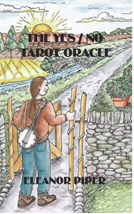I'm talking about me.
How many years has it been since I first saw the Welsh Whore and fell head-over-heels at first sight? Longer than I like to admit, 1994 ... when was that? Been a while.
And I haven't clapped eyes on him since 1998.
And now, I hear he's out and about again - - and my obession has switched itself from dull glow to fire on the hearth. Luckily it's not back up to full roar, but I guess that's only a matter of seeing his ugly mug again.
*SIGH*
Bollocks. I'm supposed to be writing and recouperating, not pining for someone I can never have. GRRR!!!
'Scuse my language, but FUCK!
What else has happened this month?
Oh yes, Producer No#1 is making encouraging noises about The Grim (A.K.A. The Legend of the Beast) again. :)
So, in the last few weeks:
* 2 books (full swing),
* the American Collaboration Rewrite (full swing),
* The Grim (peering at me from the darkest jungle),
* and the Welsh Whore is hogging all my thoughts.
I have to concentrate on writing.
Someone send me an "anti-love potion"? Please?
[UPDATE 21st November 2009: Thank you for the anti-love potion. :) Greatly appreciated!] *evil laughter*
Showing posts with label conflict. Show all posts
Showing posts with label conflict. Show all posts
Tuesday, 10 November 2009
Friday, 5 June 2009
Guttering: emotional impact and momentum
A.K.A. BLOOD IN THE GUTTERS*.
Steve posted recently about creating momentum in story by cutting scenes correctly, in late - out early, contrast the scenes to build conflict, and letting the audience fill in the blanks in order to heighten their investment in the story being told because they have become co-creators in the movie/story process.
I definitely agree with all of this. And it is difficult to build these things into the story you are telling - that's why writing is work. It has to be said that this kind of finessing is missing from the majority of scripts that are out there that I've read [mine included, embarrassingly].
Part of our writer's toolbox should be understanding the importance of creating the Off Screen Movie as this can lead to a far more involving movie-going experience for the audience. - - The link goes to Terry Rossio's description of his awakening to that realisation when watching Schindler's List. Follow the link and read it, you'll be glad you did!
I had a similar revelation myself when reading *Black Orchid where the blood in the gutters totally blew my mind. It was like my subconscious screaming at me - -
...story can happen off-screen in a very powerful, emotionally involving way, if you hint at it correctly.
It completely changed the way I look at telling stories, and reinforced exactly how important it is to cut from scene to scene in the right places and how we should hint at our off-screen story in a way that allows it to be a living entity in the background of the unfolding tale. The landscape, if you will.
In short, I believe that in an ideal world the offscreen story should be part of the arena of the film as well as being an intimate part of the viewer's emotional experience of the story being told.
Screenwriter bollocks? Maybe. But IMO that doesn't make it any less true, or any less important to the process of crafting a very satisfying, emotionally moving tale.
... Now all I have to do is work out exactly how to do that....
Steve says that it's all a matter of planning. I think he's right. Annoyingly.
Steve posted recently about creating momentum in story by cutting scenes correctly, in late - out early, contrast the scenes to build conflict, and letting the audience fill in the blanks in order to heighten their investment in the story being told because they have become co-creators in the movie/story process.
I definitely agree with all of this. And it is difficult to build these things into the story you are telling - that's why writing is work. It has to be said that this kind of finessing is missing from the majority of scripts that are out there that I've read [mine included, embarrassingly].
Part of our writer's toolbox should be understanding the importance of creating the Off Screen Movie as this can lead to a far more involving movie-going experience for the audience. - - The link goes to Terry Rossio's description of his awakening to that realisation when watching Schindler's List. Follow the link and read it, you'll be glad you did!
I had a similar revelation myself when reading *Black Orchid where the blood in the gutters totally blew my mind. It was like my subconscious screaming at me - -
...story can happen off-screen in a very powerful, emotionally involving way, if you hint at it correctly.
It completely changed the way I look at telling stories, and reinforced exactly how important it is to cut from scene to scene in the right places and how we should hint at our off-screen story in a way that allows it to be a living entity in the background of the unfolding tale. The landscape, if you will.
In short, I believe that in an ideal world the offscreen story should be part of the arena of the film as well as being an intimate part of the viewer's emotional experience of the story being told.
Screenwriter bollocks? Maybe. But IMO that doesn't make it any less true, or any less important to the process of crafting a very satisfying, emotionally moving tale.
... Now all I have to do is work out exactly how to do that....
Steve says that it's all a matter of planning. I think he's right. Annoyingly.
Subscribe to:
Posts (Atom)





.png)
